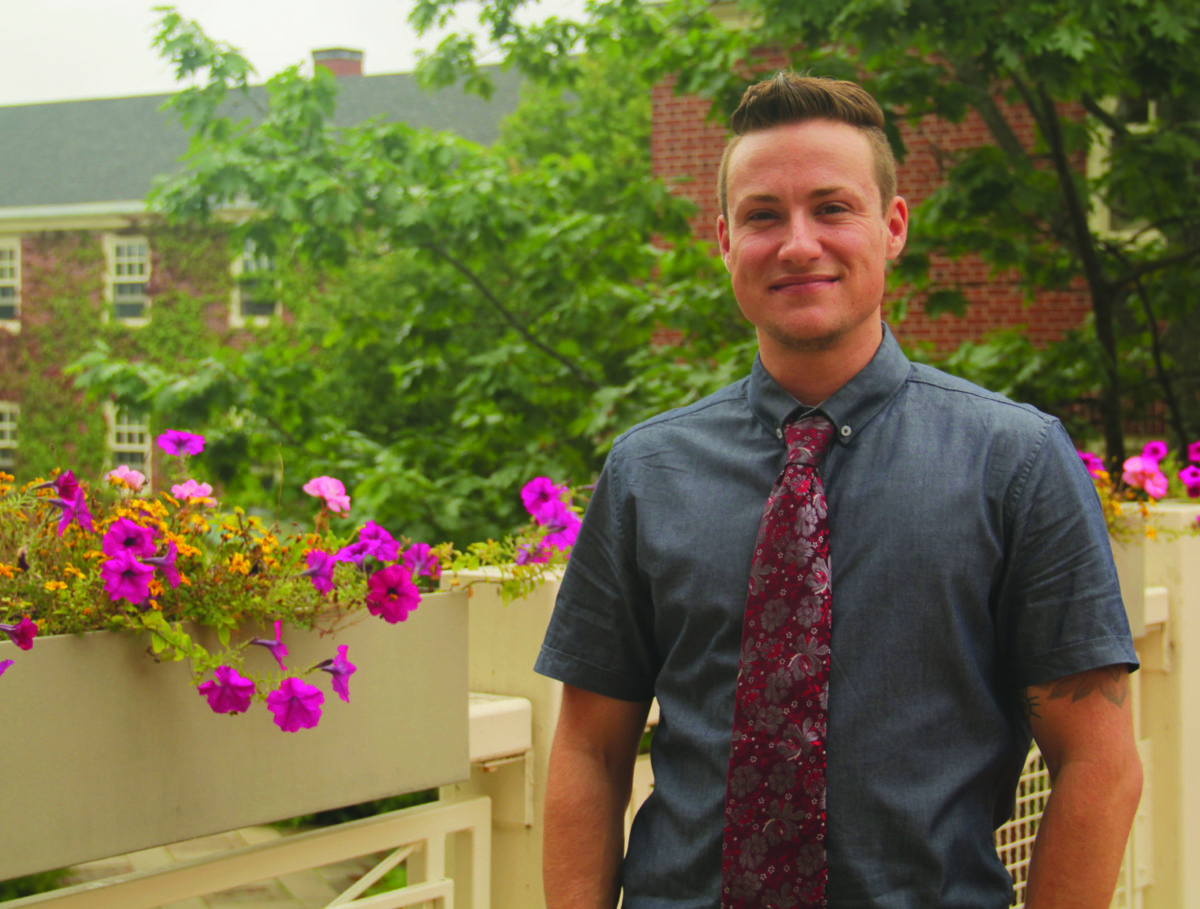

When AJ Ripley was 18 years old he was hospitalized because of Crohn’s disease. He could barely eat because of the pain so he lost weight and was hooked on IVs to stay alive.
During this time, Ripley was in his first year at St. Thomas University. Keeping up with the workload while dealing with his illness was nearly impossible. He was falling behind in every course and almost lost a full year of school as his episodes of hospitalization lasted months at a time.
One day at the hospital Susan Reid, who was Ripley’s Criminology professor at STU, dropped by.
“She said, ‘I know you’re scared right now and you have a lot going on but you’re a very smart student. You’ll be able to get through this and bounce back on your feet,’” Ripley said.
Before this, Ripley hadn’t realized how much STU professors cared about their students.
After she left, Ripley went outside the hospital for some fresh air. From where he stood, he could see down over the STU campus.
“I remember thinking, ‘She’s right. I’m going to go back and be a student. And then I will be the kind of professor she was to me.’”
That was the day Ripley realized he wanted to become a professor.
***
![(Sherry Han/The AQ) ‘I want to inspire [students]. I want them to believe that they have what it takes to follow, as cheesy as it sounds, their dreams when it comes to writing,’ said AJ Ripley, communications professor at St. Thomas University.](https://theaquinian.net/wp-content/uploads/2016/09/AJ-final.jpg)
Ripley was born and raised in Charlottetown, P.E.I. and first came to STU as a student in 2003 where he got his BA in English literature and Sociology. After graduating in 2008 he went to Victoria, B.C. to get his Master in Fine Arts in writing.
He then moved to Toronto to work as a professional writer and a diversity educator.
Ripley came back to Fredericton in 2014. Last year, he hosted and co-produced On Hold, a Vice Canada documentary that explores his and other transgender peoples’ fight for better health services in the country.
Ripley was hired during last year’s winter semester to be a sessional lecturer for the Communications and Public Policy department at STU and will be teaching one of the two fundamentals of writing classes offered this term.
***
Ripley’s memorable experience at STU is one of the reasons he decided to come back to teach at his alma mater.
“This is my 22nd year of school, including high school, junior high, elementary, undergrad, Masters and PhD. And STU is by far the best five years of that. Here I developed as a learner, as a person and I always felt supported and safe.”
He wants his students to have the same memories of accomplishment and empowerment that he felt when he walked these halls.
“I want to inspire them. I want them to believe that they have what it takes to follow, as cheesy as it sounds, their dreams when it comes to writing.”
In his class, Ripley wants to focus on creativity.
“For me writing is always a creative pursuit. I want people to feel that they leave the course with an expanded mind about what they’re capable of doing creatively.”
Ripley is currently getting his PhD from the University of New Brunswick. He is exploring how all the recent representation of transgender people in the media influences how other trans people talk about their identities.
“I am trying to figure out what the relationship is between popular culture’s representations of trans people, the narratives that exist online and those stories that are not being talked about yet.”
Ripley says everyone asks him if he brings in trans and queer topics to his classes. He always replies that it depends if it’s relevant.
“With writing I think it is very relevant. I think writing classes need to include more written work by women, by queer people, by trans people, by people of colour, or people whose identities reflect more than one of those categories, so yeah I bring in content that fits for that,” he said.
To him, one of the most rewarding parts of teaching is putting forward those voices that aren’t being heard.
“I’m always aware of representing diversity in my reading list.”
Ripley tries to create safe spaces in every class he teaches.
“I don’t necessarily talk about gender identity politics in my classrooms, unless it comes up in the material, but I do make everyone aware at the beginning that we respect each other’s identities and this is an open space to be yourself freely.”
